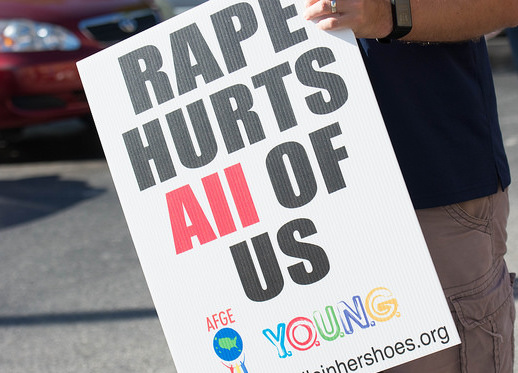
Last week, HBO released the documentary, Leaving Neverland, which chronicles two young men’s accounts of sexual abuse by pop superstar Michael Jackson in the late 1980s and early 90s. The documentary provides harrowing details of abuse and grooming, although Jackson maintained his innocence throughout his life. Yet, beyond Jackson’s guilt or innocence, HBO’s airing of Leaving Neverland forces us to engage in larger discussions about an often-neglected group of sexual assault survivors — adolescent boys. Sociological research is examining how masculinity and heterosexuality shape boys’ experiences of sexual victimization.
Threat to masculinity often shapes how male youth interpret experiences of sexual coercion. Many boys view sexual victimization by another man as individual weakness and vulnerability. Forensic interviews with adolescent male survivors reveal how boys attempted to fight off their male perpetrators and/or avoid physical stimulation to show their unwillingness. Boys can be hesitant to disclose abuse by older men because they do not want others to think they are gay. Sexual abuse by women is often viewed as less harmful (e.g. saying it was “weird but fine” and “she wanted it”), suggesting that despite women’s use of sexual coercion and manipulation, these interactions posed less of a threat to boys’ masculinity.
- Aliraza Javaid. 2017. “The Unknown Victims: Hegemonic Masculinity, Masculinities, and Male Sexual Victimisation.” Sociological Research Online 22(1): 1-20.
- Heather Hlavka. 2017. “Speaking of Stigma and the Silence of Shame Young Men and Sexual Victimization.” Men and Masculinities 20(4): 482-505.
Parents of boys who were sexually assaulted by other men also reinforce cultural messages that link same-sex sexual victimization to homosexuality. Many parents believed the trauma of sexual assault by another man would turn their son gay. In his interviews with 62 parents of Black and Puerto Rican male victims, Shawn McGuffey found that parents engage in “gender recovery work” after the abuse to reaffirm heteronormative gender roles. As such, they encouraged their sons to participate in heterosexual relationships, objectify women, and engage in sports. Fathers in particular expected that immersing their sons in traditionally masculine activities would strengthen their heterosexual identities after the trauma of same-sex assault.
- Shawn C. McGuffey. 2005. “Engendering Trauma: Race, Class, and Gender Reaffirmation after Child Sexual Abuse.” Gender & Society 19(5): 621-643.
Criminal justice institutions further reinforce gendered rape myths regarding male sexual assault victims. Court observations reveal how attorneys dismantle boys’ credibility by pointing to the lack of emotional trauma on the witness stand and physical evidence on their bodies. In the case of one 12-year-old boy, defense attorneys dismissed the victim’s claims of assault by two older men because the boy did not show enough emotion and failed to display the penetrative injury expected from a same-sex sexual assault. One defense attorney suggested a young Latino victim fabricated the use of sexual force by his sister’s boyfriend because he was ashamed to admit that he “consented” to homosexual sex.
- Amber Joy Powell, Heather Hlavka, and Sameena Mulla. 2017. “Intersectionality and Credibility in Child Sexual Assault Trials.” Gender & Society 31(4): 457-480.
As we continue to grapple with the implications of #MeToo for boys, sociology allows us to challenge how masculinity and heteronormativity silence young male sexual assault survivors. Dismantling these systems of power brings us one step closer to effective prevention and response to boys’ sexual victimization.

Comments